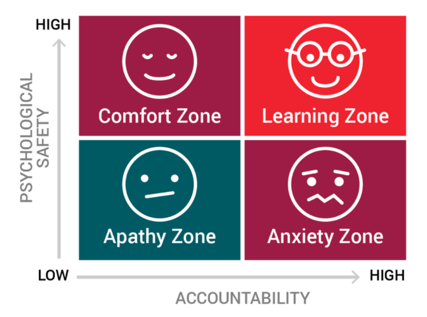Among nursing faculty, there is a common assumption that anxiety is detrimental to student performance. At the same time, we have embraced simulation as a valuable tool in nursing education, providing our students with a safe environment to develop clinical judgment and skills without the risk of patient harm. Some studies, like this one, show that stress is actually important - and maybe even necessary - to the learning process. So how do we help students learn while they experience anxiety and stress that will be common in their professional lives?
However, if not handled correctly, anxiety, particularly around clinical simulations, can be a barrier to effective learning. How can we reconcile these competing notions? There is an inherent conflict between the safe space we want to create in our simulation labs and the stress that is critical for learning. Looking at the distinctions between facilitating and debilitating anxiety can help, and may change your mind and your practices when it comes to simulation-related anxiety.
In this chart from the article Psychological Safety of Teams, you can see how anxiety stems from a mixture of high pressure and low safety. By continuing to hold students to high standards of accountability but increasing their psychological safety, we can help students focus on their learning and manage stress.

Here are five key steps you can take in your simulation lab to help students manage anxiety and master the curriculum:
Step 1: Recognize the Two Types of Anxiety
Understanding the nuances between the two types of anxiety: facilitating and debilitating is an important first step. Facilitating anxiety can motivate your students to step up to challenges and put in extra effort to overcome their anxiety, potentially enhancing performance. In contrast, debilitating anxiety may cause your students to avoid tasks or shut down, hindering their performance.
Step 2: Focus on Real-World Preparedness
Instead of attempting to eliminate anxiety entirely, you can help your students learn to function effectively despite their anxiety levels. Nursing is a high-stress profession, and preparing your students to manage and work through their anxiety may better prepare them for the real-world challenges they will face in their careers.
Step 3: Incorporate Teaching Strategies
Using teaching strategies such as mental rehearsal and autogenic training (relaxation techniques) can assist your students in managing their anxiety. These techniques can be incorporated into your preparation for nursing simulation activities, helping your students function more effectively in high-pressure situations.
Step 4: Develop Mindfulness and Emotional Intelligence in your Students
Encouraging your students to become mindful and self-aware of their emotions is one way to build emotional intelligence. This can be valuable in helping them cope with anxiety and stress in their nursing careers.
Step 5: Focus on Building Challenging Learning Experiences
Managing student anxiety allows you to focus on creating challenging learning experiences that help students develop clinical judgment rather than solely trying to reduce anxiety. These experiences can better prepare students for the demands of nursing practice.
We need to challenge the conventional wisdom that anxiety should always be reduced in educational settings. Distinguishing between types of anxiety and helping students develop strategies to cope with and utilize anxiety productively is a critical component of running a successful simulation curriculum. As nursing faculty, we can play a crucial role in preparing students for the real-world challenges they will face in their profession, where managing anxiety is often a part of the job.



